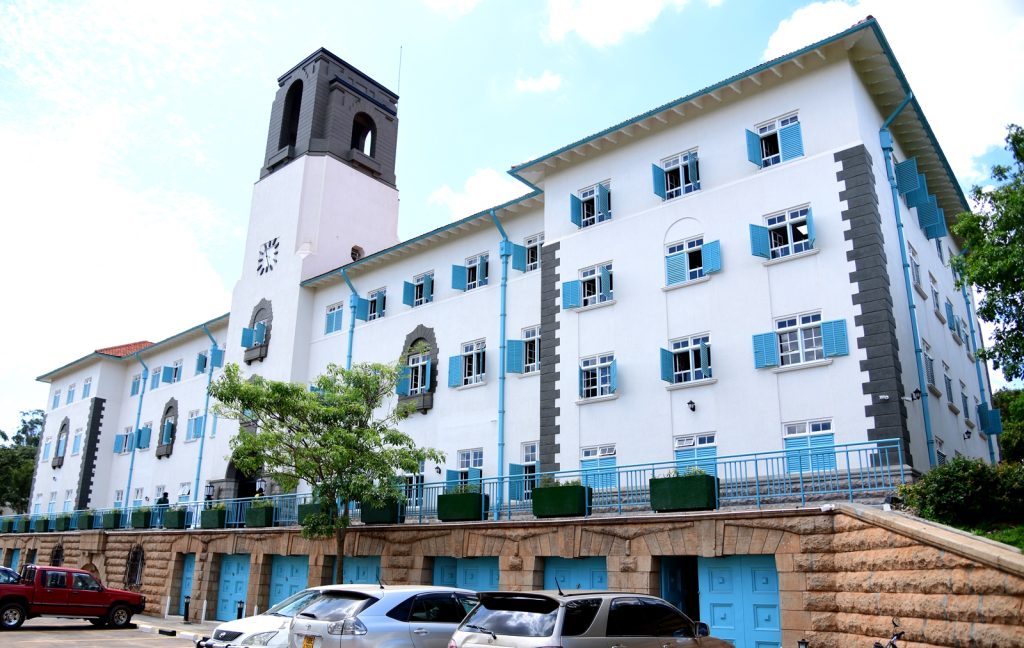Law Dons Encouraged To Mainstream HIV/AIDS In The Teaching Of The Law
Legal academics have been urged to change the way they teach law by adopting more practical approaches and working closely with the communities served.
This came up in a dialogue organized by the International Development Law Organization (IDLO) for Law teachers drawn from Makerere University School of Law and Uganda Christian University held at senate building at Makerere University recently.
The dialogue on the topic HIV, Law and Human Rights was targeted at Legal Academics with a purpose ofbuilding sustainable approaches to reduce discrimination and advance access to justice for key people living with HIV and Key populations. It involved the participation of representative of communities of people living with AIDS, commercial sex workers and drug users.
In his remarks at the opening of the dialogue, Ass. Prof. Christopher Mbazira the Principal School of Law appreciated the strides made by Government and other agencies in addressing the HIV challenge in the country. He however noted that the legal academicswere not adequately prepared to embrace the challenge by looking critically at the role oflaw in the face of HIV/AIDS.
Mbazira said the dialogue was coming it timely when the Law Schools werechanging the teaching of law from the classroom lecture methodologyto clinicalexperientiallearning that exposes students to practical aspects of the law.He said with the introduction of Health and the Law course in the law curriculum,this was to beenriched with HIV related topics. He commended IDLO for the initiative which he said, would provide guidance and getting various actors together to find ways of gaining from practical experiences and continuing the discourse as well as sharing experiences from each other.
In the discussions, it was noted that the Universities were better placed to discuss contentious issues thatwere not easily covered in the public domain without the fear of being judged for any reason.
The Dean School of Law Uganda Christian University Dr. Anthony Kakooza gave a background of HIV/AIDs in Uganda right from the 1980s and the big strides that were taken, that unfortunately ended up into complacency as seen today. He expressed optimism that the dialogue and future discussions on HIV/AIDS more so in the teaching of Health and the Law program would empower the University based law clinics, the lectures and the students to mainstream issues of HIV in the day to day programs.
Dr. Daniel Byaruhanga, the head of HIV prevention at Uganda Aids Commission in his presentation on the evolutionof HIV in Ugandasaid although the number of people living with HIV stands at 1.3 million today, Uganda is committed to end HIV by the year 2013. He said that the prevalence is coming down with 52,000 new infections in 2016 and 28,000 HIV related deaths reported in 2016.
Dr. Byaruhanga said the government of Uganda adopted the 90-90-90 strategy which he explained to refer to having 90% of the population tested for HIV by 2020, and 90% of those tested positive treated. This can be realized by adopting measures that address the barriers that stop the realization of 100% response, citing them as structural, behavioral, and biological.
He said Uganda AIDs Commission is a source of critical information forpeople teaching the law which can be helpful in establishing ways through which the law can be used to address structural and systemic barriers as well as the misinterpretation of the law all of which have an impact on HIV.
The discussions that ensued pointed to the need to start talking about the realities of issues faced by communities of persons affected by HIV and the need to start thinking about contributions to redress the violation against the affected people.
Criminal law was identified as an important area in the HIV epidemic given that a lot of countries, government,police, and other lawenforcement agencies use the law which makes it difficult for people living with AIDs to operate, citing the example of legal terms that are used by lawyers but are not understandable to people that seek the services as an example.
According to IDLO, the dialogue is a sustainable venture with long-term results working with academics to support and build the capacity of law teachers who shape the direction of the future of the nation as they nurture thefuture generation of the lawyers enabling them respond to issues of HIV/AIDS with a Human rights approach.
As lawyers, there was need to help understand what is and is not acceptable in regard to HIV and that the law can remove barriers and empower people because law shapes so much of what society is like.
Also discussed were topics like Criminal Law in HIV Epidemic, using the law to end HIV/AIDS related discrimination and human rights violations.



